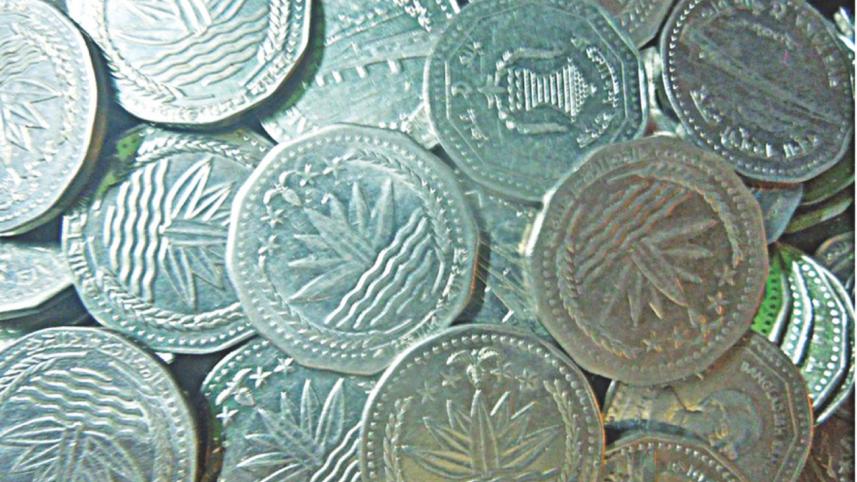Rural women's savings at odds

Sharmin Akhtar, 26, a housewife from a lower middle class family in Sadar upazila, who prefers to deposit coins in earthen banks, a traditional method of storing surplus income or savings, desired to buy new dresses for her children during Eid.
She, however, could not fulfil her wish during the Eid shopping this year as shop owners refused to receive the payment when she tried to make the payment with coins, saying banks don't receive coins for want of adequate storage facilities.
Many women in rural area still prefer to save coins as paper notes become damp, discoloured and sometimes face fungal attack when kept in earthen banks.
Like Sharmin, many rural women in the district had to face such unwanted situation during the Eid shopping as shopkeepers were not interested to sell products to them in exchange of coins.
Akhtar Siddiquee Pappu, owner of a confectionary in Saidpur municipal area, said, “A good number customers in rural areas are women and children and they buy bread, biscuits, or chocolates with coins.”
“I went to the local branch of National Bank Limited to deposit huge amount of stored coins recently. But the bank manager received a small portion of the coins and returned the major portion saying that there is not enough room in his bank to keep those,” he said.
Nilphamari Chamber of Commerce and Industries (NCCI) Vice-president Md Farhanul Huque said, “Coins amounting to crores of taka remain as idle money in the hands of individuals, especially women, creating a deadlock in rural savings.”
Bangladesh Bank (BB) through a circular, issued on March 29, 2017, directed all commercial banks to pay and receive coins otherwise they would face stern action, Farhanul said, adding that the banks receive only a small amount of the coins.
Ariful Islam, manager of Agrani Bank's local branch, said, “We tried to follow Bangladesh Bank's order which directed us to receive coins amounting up to Tk 30,000. But we've stopped receiving coins as we can't transfer those to BB which has a shortage of space.”



 For all latest news, follow The Daily Star's Google News channel.
For all latest news, follow The Daily Star's Google News channel.
Comments